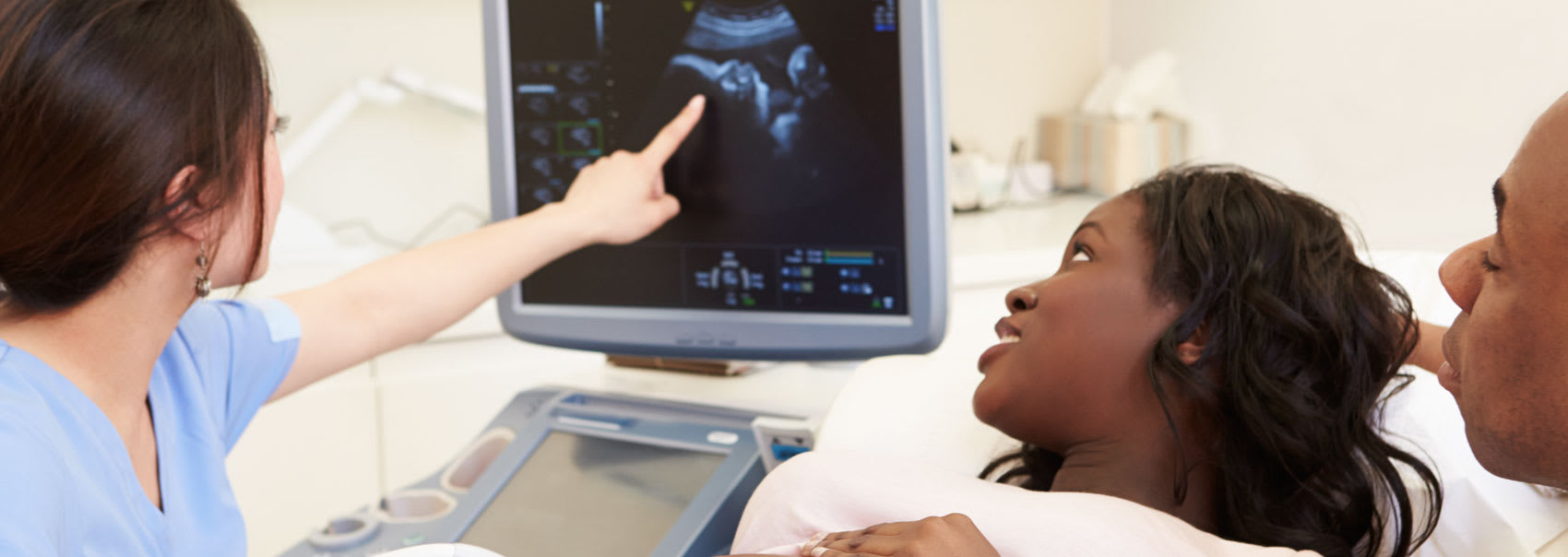What is an abdominal ultrasound?
With ultrasounds, high-frequency sound waves are used to capture video and images of the inside of a person’s body. Abdominal ultrasounds allow your doctor to examine organs and structures in your abdomen.
Captured in real-time, ultrasound images show the movement and structure of your internal organs, in addition to blood flowing through blood vessels.
Why would I need an abdominal ultrasound?
While this test is commonly used to examine the fetus in pregnant women, it also has many other uses such as checking major organs, including the liver, kidneys, gallbladder, spleen and pancreas. If your doctor suspects you have any of the following conditions, you may be referred to Premier Imaging for an abdominal ultrasound:
- Appendicitis
- Stomach pain
- Hernia
- Blood clot
- Cholecystitis (inflammation of the gallbladder)
- Enlarged organ (kidneys, spleen or liver)
- Liver, stomach or pancreatic cancer
- Gallstone
- Kidney stone, cancer or blockage
- Fatty liver disease
- Tumors
- Pancreatitis
- Fluid in the abdominal cavity
Abdominal ultrasounds can also be used during procedures such as:
- Checking the blood flow in your abdomen
- Draining fluid from an abscess or cyst
- Identifying where the needle should be placed during an abdominal biopsy to remove a small amount of tissue so it can be sampled
How should I prepare for my abdominal ultrasound?
You’ll receive preparation instructions for your abdominal ultrasound from a member of our team before your scheduled exam. Follow these instructions closely to make sure we get the most accurate test results.
You may be asked to stop eating or drinking a certain number of hours before your test, or to drink a certain amount of water just before your exam. Potentially, you may not need to prepare at all.
Fasting before an abdominal ultrasound may be necessary, as having a full stomach may lead to blurry ultrasound images or affect the appearance of certain organs. Contact the clinic to find out if fasting is required prior to your procedure.
What will happen during my ultrasound exam?
Abdominal ultrasounds are risk-free and do not use radiation, unlike CT scans and X-Rays. This is why doctors prefer abdominal ultrasounds to check on developing fetuses.
You’ll need to remove any jewellery or other objects from the area to be scanned. Wear comfortable, loose-fitting clothing. You may also be asked to change into a gown.
As you lie on the exam table with your abdomen exposed, a technologist will spread a lubricating gel across your abdomen to keep air pockets from developing between the transducer and your skin. High-frequency sound waves will be sent from the transducer through your body.
If you’ve been experiencing abdominal pain, you may feel slightly uncomfortable during the ultrasound. If the pain becomes severe, let your technologist know. You may be asked to hold your breath for a few seconds or turn to one side so the clearest images can be obtained.
While images generated from an abdominal ultrasound can provide exciting keepsakes to expecting parents, the U.S. Food and Drug Administration advises that ultrasounds should be saved for a specific medical need and to avoid unnecessary extra ultrasounds. This is because doctors aren’t sure that long-term risks do not exist.
How long will this exam take?
An abdominal ultrasound typically takes under 30 minutes.
Which factors can compromise my test results?
These conditions or factors can alter the results of an ultrasound:
- Food in the stomach
- Excessive intestinal gas
- Severe obesity
- Barium (a liquid you swallow during some tests, which helps your doctor examine your gastrointestinal tract and stomach) remaining in the intestines from a recent barium procedure
What happens after the exam?
When the exam is over, the technologist will clean the gel from your abdomen. The test results will be interpreted by our radiologist before being sent to your doctor, who will discuss your results with you in a follow-up appointment. Your doctor may request a follow-up exam or other diagnostic tests if any issues were discovered.

